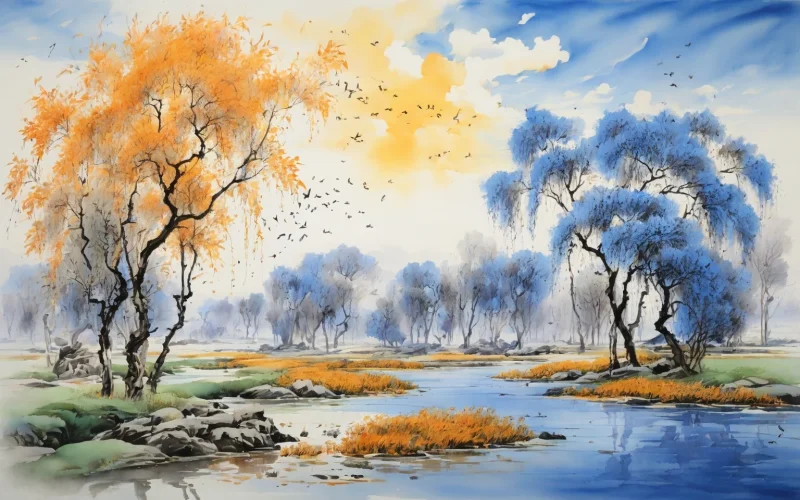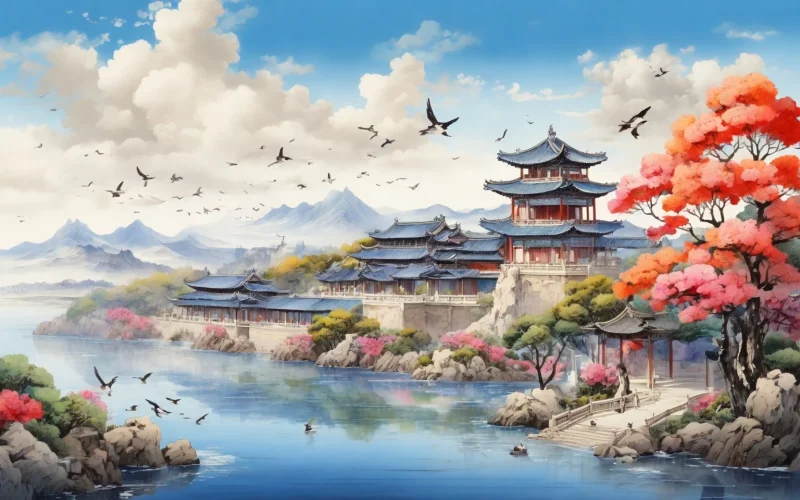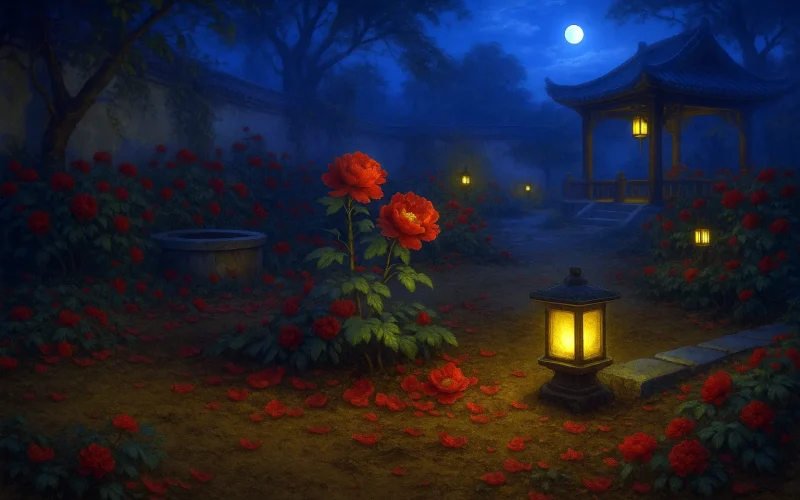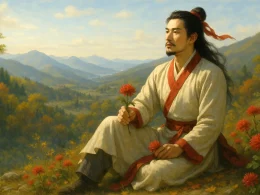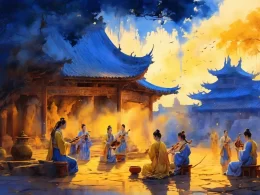A tree of million branches sways in breeze of spring,
More tender, more soft than golden silk string by string.
But in west corner of a garden in decay,
Who would come to admire its beauty all the day?
Original Poem:
「杨柳枝词」
白居易
一树春风千万枝,嫩于金色软于丝。
永丰西角荒园里,尽日无人属阿谁?
Interpretation:
This poem was written during the late Tang dynasty, a time when factional struggles were intense, and many talented individuals were often sidelined or forgotten. Although Bai Juyi had once been an official in the imperial court, political rivalries prevented him from gaining the recognition he deserved in his career. In this poem, the poet uses the image of a weeping willow to metaphorically express his feelings about his own circumstances and the frustration of seeing talent go unrecognized in society. In reality, it serves as a critique of the talent selection system and the government officials of the time.
First Couplets:“一树春风千万枝,嫩于金色软于丝。”
The spring breeze blows gently, and the branches of the willow sway like thousands of threads in the wind, the new buds appearing golden and softer than silk.
These lines describe the lightness and grace of the willow tree in the spring breeze. The branches are abundant, and the long, slender willow twigs sway in the wind, capturing the vitality and beauty of the tree. The phrase "softer than gold, softer than silk" emphasizes the fragile and delicate qualities of the willow, highlighting its elegance and beauty.
Second Couplets:“永丰西角荒园里,尽日无人属阿谁?”
In the desolate garden at the western corner of Yongfeng Alley, no one comes to tend to it, and who will the beautiful willow tree belong to?
The latter part contrasts the beauty of the willow with the desolate environment it grows in, emphasizing the tree’s loneliness and neglect. By describing the "desolate garden" and "no one" to tend to it, the poet suggests that despite the willow’s beauty, it is unappreciated simply because it grows in an unsuitable place. This sharp contrast reflects the poet’s own sense of helplessness, implying the phenomenon of talented individuals being overlooked in society.
Overall Analysis:
The poem expresses the poet’s frustration and resentment over his own unrecognized talents through the imagery of the willow’s beauty and isolation. The first two lines depict the willow’s beauty, softness, and vitality, representing the life force of nature. However, the latter two lines shift to the willow’s harsh reality, contrasting its beauty with the barren surroundings, emphasizing its fate of loneliness and neglect. This comparison reveals the poet’s disappointment and anger, making this poem not only an observation of nature’s beauty but also a reflection of the poet’s disillusionment with society and politics. It critiques the injustice of the political and social system that causes talent to go unnoticed.
Writing Characteristics:
- Emotional Landscape: The poet vividly describes the willow tree, blending the natural scenery with his inner emotions. The tree’s beauty and solitude become a vehicle for the poet to express his own feelings.
- Contrast Technique: The contrast between the willow's beauty and its desolate environment highlights the tree’s loneliness and lack of appreciation. This contrast deepens the emotional impact of the poem.
- Symbolism: The willow is not just a natural object in the poem; it also symbolizes the poet’s own unrecognized talents, reflecting his disappointment with the lack of recognition and his dissatisfaction with the social and political situation.
Insights:
Through the image of the willow tree, this poem powerfully reflects the reality that many talented individuals in society and politics face injustice, as they are not given the proper attention or promotion. It reveals a deep truth: that environment, timing, and background play a crucial role in shaping one’s opportunities. The poet uses this poem to express his own sense of loss over his unrecognized talents, while also warning us to always pay attention to and value those who are truly gifted.
Poem translator:
Xu Yuan-chong (许渊冲)
About the poet:

Bai Juyi (白居易), 772-846 AD, was originally from Taiyuan, then moved to Weinan in Shaanxi. Bai Juyi was the most prolific poet of the Tang Dynasty, with poems in the categories of satirical oracles, idleness, sentimentality, and miscellaneous rhythms, and the most influential poet after Li Bai Du Fu.





